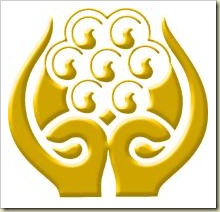South Asian Association for Regional Corporation's (SAARC) 15th annual meeting has just concluded in Sri Lankan capital Colombo. With the eight members countries (India, Nepal, Pakistan, Bhutan, Sri Lanka, Maldives, Bangladesh, and Afghanistan), it is the largest regional bloc in the world in terms of population. It has new "observer" members likes the US, the EU, China, South Korea, Japan, Mauritius, and Iran (now Myanmar and Australia as well). Usually, the meeting is overshadowed by bitter diplomatic ties between India and Pakistan. The meeting is usually a gathering of heads of state, without any substantial outcome. Nevertheless, it provides a very useful forum for the countries to discuss the most common issues plaguing the region with the highest number of people below $1 a day.
 This time the meeting decided to establish a SAARC Development Fund (SDF), with an initial capital of $300 million. Bhutan has offered tax breaks and other diplomatic level incentives to host headquarter of SDF. Though the initial capital, which is just a commitment and has yet to be realized in real terms, is very small, the leaders have rightly identified maternal and child health, women empowerment, and teacher's training as a priority. Teacher absentee is one of the most pressing problems in the education sector in South Asia. More here.
This time the meeting decided to establish a SAARC Development Fund (SDF), with an initial capital of $300 million. Bhutan has offered tax breaks and other diplomatic level incentives to host headquarter of SDF. Though the initial capital, which is just a commitment and has yet to be realized in real terms, is very small, the leaders have rightly identified maternal and child health, women empowerment, and teacher's training as a priority. Teacher absentee is one of the most pressing problems in the education sector in South Asia. More here.
It needs to be seen how effective and fruitful the Colombo declaration would be in terms of increasing regional trade, reducing poverty, facilitating energy cooperation and trade, and cooperation in the fight against the threat of terrorism. The people are yet to feel the effect of SAFTA, the free trade agreement among the seven (plus Afghanistan added last year) countries.
Though I am skeptical of great strides in economic cooperation due to SAARC agreements, I am hopeful that it would be one of the most important regional blocs in the world in the coming years. Why? Because of India's growing economic and political power in the international arena, because of the availability of the only forum where the bitter ties between India and Pakistan can be resolved, because of the importance of fighting terrorism in Afghanistan and Pakistan, because of the highest number of people under $1 a day, because of the political development in Nepal, where terrorism was put to rest through political reconciliation-a reminder to the world that victory over insurgency is best achieved through political means, not through military might, and because of increasing interest of the most powerful countries to associate with SAARC as observers (imagine what the US, Australia, Iran, and Myanmar have to with a regional bloc in South Asia!).